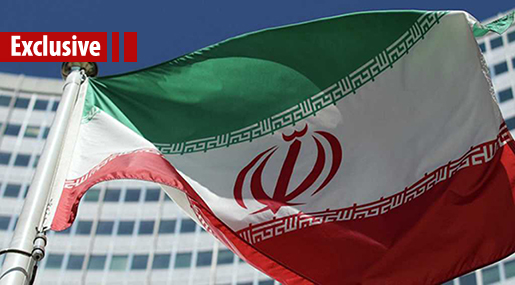
The Economic War on Iran and the Wrong American Assessment

Mohammad Ali Jaafar
Despite the worsening economic crisis faced by the Islamic Republic of Iran, Washington, along with Tel Aviv and some other states, continues to misinterpret the realities on the ground. It is not the first time that an economic war has been waged against Tehran, although the current war is the most challenging.

But approaching the matter without taking into account how the American and "Israeli" media deal with the subject can only produce a partial analysis and a false reading. What is happening in Iran is far cry from a global war - a picture that the Americans and the "Israeli" entity are trying to paint, showing a great gap between the Iranian people and the ruling government.
In recent days, speeches by American and "Israeli" officials have been inciting the Iranian people against their government. This indicates the following:
First: Washington and "Tel Aviv" moved from a policy of indirect confrontation with Tehran, i.e. through allies, to a policy of direct confrontation. This is a natural outcome as the Americans engage in the battlefield after the gambits through the agents of their allies failed to produce results.
Second: Washington and Tel Aviv seek to move the conflict into a new arena of engagement - the Iranian internal arena. This is evident through the American policy of courting the Iranian people, as well as the "Israeli" messages that Netanyahu sent to the Iranian people through social networking sites, which touched on the economic situation in Iran and the supposed means of assistance that "Tel Aviv" possesses.
Third: The new economic war, which is categorized as a soft war, aims to destabilize the strategic depth of the resistance axis, i.e. Iran. This may contribute to losses in other fields. This cannot happen in light of Iranian developments and advancements at all levels.
Based on the above, it seems clear that the US is betting on the possibility of destabilizing Iran through an economic crisis. From an American perspective, this crisis can serve as a pretext to strike the interests of Iran and its allies. By doing so the Americans are hoping to push Tehran to compromise or submit regionally.
On the other hand, Washington and "Tel Aviv" understand that all strategies to punish Tehran, including the strategy of containing Iran through a nuclear deal did not succeed. This made the decision-makers aware of the limited options regarding Iran. Thus, they have no choice but to rely on the effects of American pressure on the Iranian people and strike the people's assimilation with the government.
Once again, the Americans have made an error in their assessment. For the Iranian leadership, the fierce war between Tehran and "Tel Aviv" does not come down to trade and the economy. It is a war based on ideology and doctrine. The perseverance displayed by Iran against previous sanctions is the only experience that should be considered and bet on. This proves that US gambits will fail. This means that the miscalculations regarding the realities on the ground in Iran will have major regional repercussions on "Israel's" national security and therefore American influence in the region. In addition, the Iranian government enjoys an extensive popular following, contrary to what the Americans think. This is a game of political calculations assumed by most countries. But the difference is that there is no room for mistakes in the current reality because it will be the last card played.
Source: Al-Ahed



